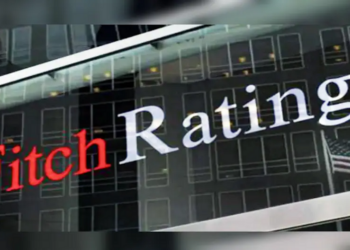On Friday, Fitch Ratings affirmed Kaduna State’s Long-Term Foreign- and Local-Currency Issuer Default Ratings (IDRs) at ‘B’ and National Long-Term Rating at ‘A+(nga), confirming the outlooks as stable. The latest outlook for the state comes as a mixture of both good and bad aspects, with the good slightly outweighing the bad. Here is a breakdown of the good and bad in Kaduna’s latest Fitch ratings.
Bad
- Statutory allocations for the state are steadily declining as the national revenue, which is heavily reliant on sales from crude oil exports, continues to dwindle on the back of the slump in crude oil prices
- The state’s debt is fast growing in nature as is the case with several other states in the country. Its total debt at the end of fiscal year 2016 was N98 billion, or nearly over 120% of the state’s current revenue. Fitch also expects this to increase by over 300% by end-2019 as a result of increased lending. The $350 million (NGN126 billion) loan with the World Bank signed by management in June will be a major contributor to this.
- Weak institutional framework, which is another problem common to many Nigerian states
- Weak revenue predictability and high budgeted capital spending being rolled over into following financial years due to a lack of funding and limited implementation capacity.
- Low tax compliance in the state coupled with a weak socio-economic profile. Kaduna’s over 8.1 million population and dependence on primary sectors means the unemployment rate is growing.
Good
- The declining statutory allocation is providing the state with an opportunity to improve its revenue mix.
- Although the state’s debt is growing, servicing requirements will be moderated by government subsidies, concessionary terms and a long grace period. For example, the World Bank loan mentioned earlier has a 20-year grace period.
- The new focus of the State government on agriculture and service sectors of the economy give room for increased, sustainable revenue, although this may be a long term achievement.
- If properly implemented, debts incurred now are expected to fund an ambitious capex program over the next three years in the power, transport, water supply, and education and healthcare sectors of the economy and improve revenue generation.
- The state’s administration has enacted measures to leverage fiscal autonomy to increase local tax revenues and compensate for the declining statutory transfers.
- Kaduna’s administration has been committed to improving transparency and disclosure. Combined with the state’s transition from cash to a more sophisticated accrual-based accounting, Kaduna’s latest Fitch ratings believes the state will become more credit-positive
- Compared to the country’s best risk, Kaduna’s latest Fitch ratings shows that the state still offers a low risk overall.






















